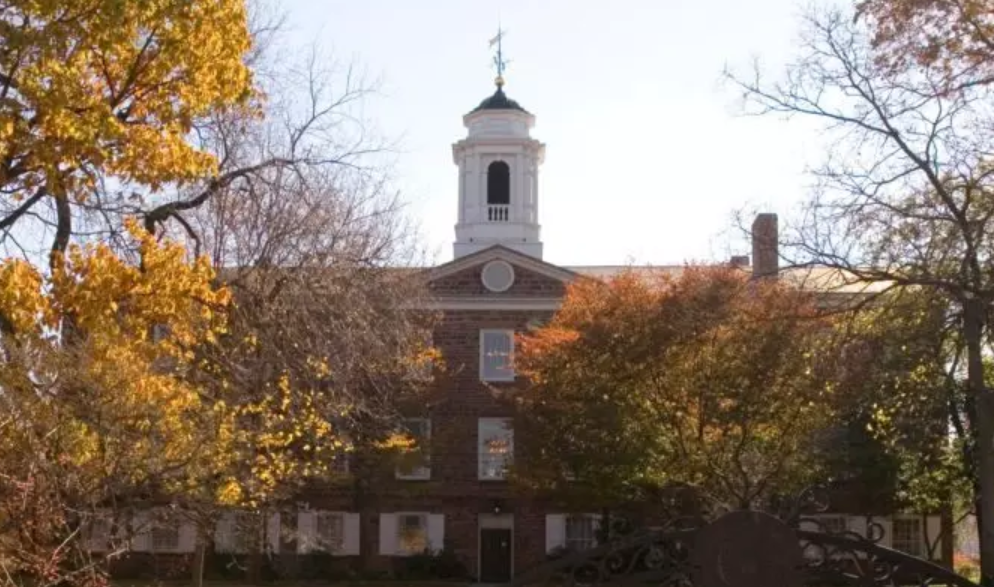Rutgers Health Officials Celebrate $47.5 Million Grant to Improve Health Care in New Jersey

State, university and community leaders gather to commemorate federal funding that will continue the Clinical and Translational Science Awards Program
NEW BRUNSWICK, NJ (October 30, 2024) — New Jersey Gov. Phil Murphy joined Rutgers and community leaders on Oct. 30 at the Child Health Institute in New Brunswick to celebrate a $47.5 million federal grant for the Rutgers Institute for Translational Medicine and Science that will improve health and well-being for New Jersey residents over the next seven years.
The Clinical and Translational Science Award (CTSA), the state’s only CTSA, transforms research discoveries into practical treatments, and is funded through the New Jersey Alliance for Clinical and Translational Science (NJ ACTS). The award promotes translational science, which uses discoveries made in the laboratory, clinic and community to create interventions that improve the health of individuals and populations, from diagnostics and therapeutics to medical procedures and behavioral health interventions.
NJ ACTS – led by Rutgers and working with partners such as Princeton University, the New Jersey Institute of Technology and RWJBarnabas Health – empowers joint research teams to turn laboratory discoveries into practical health solutions, treatments and clinical care. The alliance, formed with an initial $29 million in National Institutes of Health (NIH) funding in 2019, includes scientists, health care providers, patient advocacy organizations and community members.
“In every crisis and in every area of clinical development, NJ ACTS has accumulated a track-record of excellence. And that is why – after receiving first-of-its-kind funding from the NIH in 2019 – this program is receiving yet another investment of tens of millions of dollars to empower this great coalition to go even further,” said Governor Phil Murphy. “Over the next seven years, this funding will enable NJ ACTS to expand its focus, including putting opioid overdose prevention into practice, and utilizing machine learning projects and generative artificial intelligence to combat health inequities and improve patient outcomes. Each one of these initiatives is near and dear to my heart, as well as to the work of our Administration.”
“This major grant is an outstanding opportunity for Rutgers to continue to foster development of innovation in New Jersey as one of the leading CTSAs in the nation,” said Rutgers President Jonathan Holloway.
“Over the past fiscal year alone, Rutgers has secured nearly $1 billion in research awards, over half of which was for Rutgers Health, which indicates to New Jersey industry and the world that our state is now in the big leagues of academic clinical research,” he said.
The event featured comments by Jonathan Holloway, president of Rutgers University; Brian Strom, chancellor of Rutgers Health; Assemblyman Craig Coughlin; Mark Manigan, chief executive of RWJBarnabas Health; Reynold Panettieri, vice chancellor for translational medicine and science and director of the Rutgers Institute for Translational Medicine and Science; Shawna Hudson, vice chancellor for translational medicine and science and director for the community engagement core of NJ ACTS; Jaymie Santiago, president of New Brunswick Tomorrow; and Deacon Francis Dixon, executive director of New Hope Now Community Development Corporation.
With the latest round of funding over the next seven years, NJ ACTS will focus on putting opioid overdose prevention research into practice, preventing maternal mortality and studying childhood asthma and environmental toxins.
“This grant is a testament to Rutgers Health’s unwavering commitment to improving the health and well-being of the public,” said Strom. “Our research will develop, evaluate and disseminate new treatments for our patients. Our community collaborations will help us ensure that the solutions we develop are not only innovative, but also practical and impactful. By engaging with patients, local organizations and stakeholders in this work, we will make sure our research is grounded in the real needs of New Jerseyans.”
The new grant also further advances the framework for translational science in the state by:
- Launching and promoting clinical trials – specifically, highly complex nononcology trials such as gene therapy – and promote Rutgers as a site for sponsors
- Continuing to build networks for community-engaged research
- Bolstering diverse workforce development, such as training in dissemination and implementation science
Since the initial award, NJ ACTS has spurred collaboration that speeds the translation of research discoveries into improved patient care. The effort enables research teams, including scientists, patient advocacy organizations and community members, to tackle system-wide scientific and operational problems in clinical and translational research that no one team can overcome.
“It is inspiring to think about how we were able, as a community, to create alliances among academic institutions and clinical, state and community partners, to further clinical and translational research and training that did not exist in the state prior to our award in 2019,” said Panettieri. “In addition, our partnership with RWJBarnabas Health gave us a great opportunity to expand our clinical research, connecting the basic science research done by our 200-plus investigators to patient care statewide.”
Together, NJ ACTS institutions reach nearly 7.5 million of the state’s 9 million residents. “The transformative award is vital to the public, educational and research institutions, the pharmaceutical and biotechnology industries, and is directly tied to the HELIX site’s development in New Brunswick,” said Panettieri.





